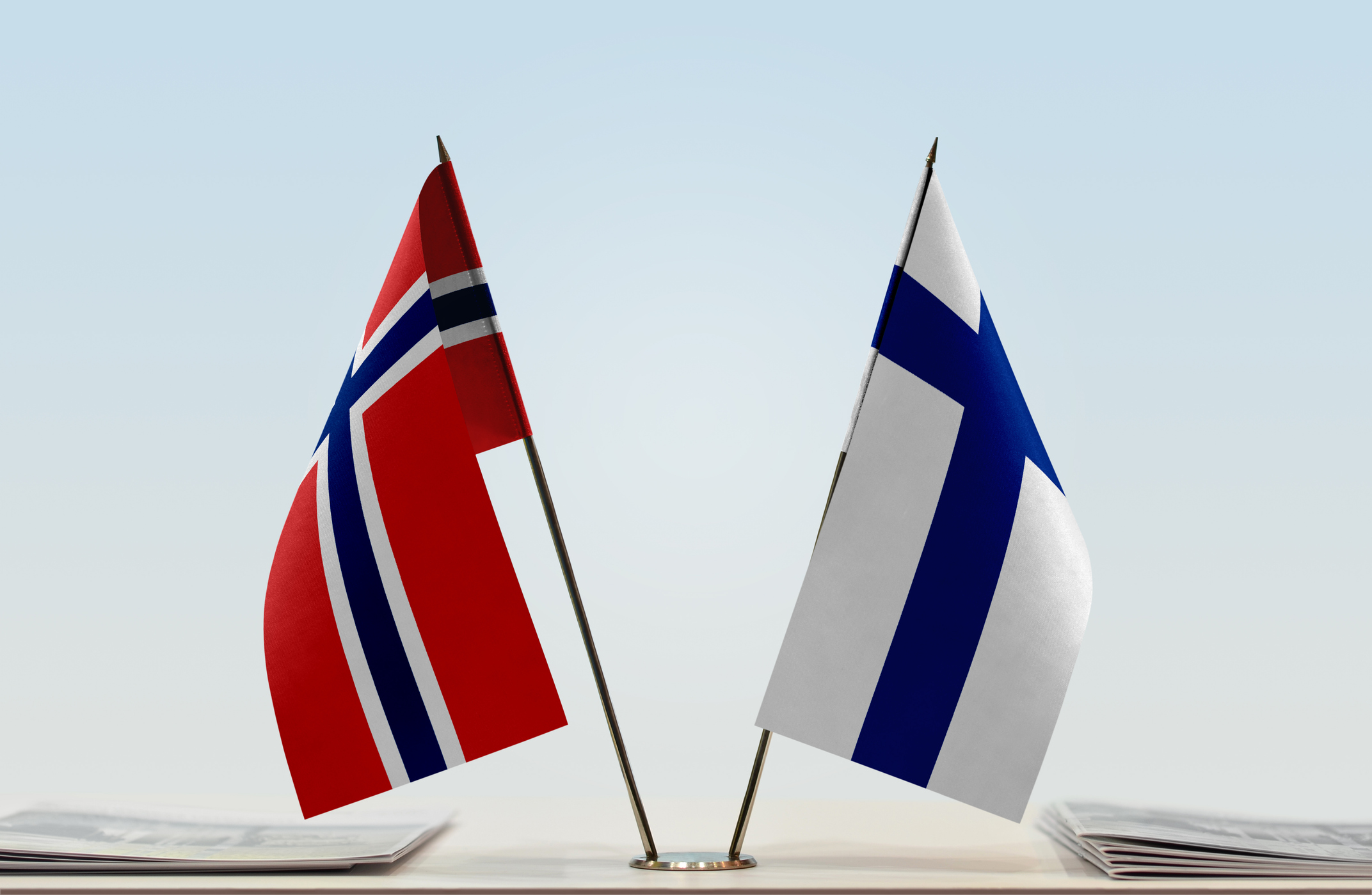
From fellow candidates for EU membership to trade union neighbors in Brussels
BlogThe cooperation between the Norwegian and the Finnish trade unions goes years back. Side by side Norway and Finland applied for EU Membership in 1994 after finishing an economic agreement between the EFTA and the EU-countries (EEA). This became a starting point for a long-lasting trade union cooperation and friendship between the countries.
The first of July 1994 was an important day in the life of four EFTA-countries; Austria, Sweden, Norway and Finland. That very day, the EU opened the doors for diplomats from those countries into a secret world called COREPER. This is the abbreviation for the Committee of Permanent Representatives, which prepares all the important issues in the European Union that should be decided by the government ministers from each EU country.
I took part in COREPER as a labour attaché in the Norwegian Mission to the EU, representing Norway LO until 28 November 1994. A historical date when a plebiscite among the Norwegian people for the second time turned down EU membership with 52,3 percent.
I recall this as a time when diplomats from the four permanent missions in Brussels should “train” to be a member country, a trial period. We could talk and propose, but our opinions could mean something or nothing.
Sweden turned out to be “a wannabe superpower” presenting opinions on a lot of issues and often before the big three, the UK (at that time), Germany and France, two of the founding fathers, would ask for the floor.
Austria was lucky to speak in the country’s local variant of German, while everyone else used a mixed level of English.
The Norwegians put forward occasional proposals, often accepted, which was thought to be helpful for a yes vote in the coming referendum, but at the end it had no effect.
The Finns sat there quietly, learning how to play this new European game consisting of 12 members and four “maybe” Members States. Suddenly Finland raised its name plate (Suomi-Finland). Slightly surprised by this, the others listened to the short and very concise remark which was to the point. Finland caught everybody’s attention by, firstly, having a good remark and secondly, by talking about something that was of great importance to Finland. Finland gained respect for their quiet and respectful manner.
On the 29th of November the name plate for Norway was removed. I and my Norwegian colleagues left COREPER, and by that an era came to an end.
Office buddies
I returned to the LO office, which at that time had a rental space in the House of the Swedish Trade Union Brussels Office. In January 1995 we moved into the brand-new International Trade Union House ITUH. LO Norway became neighbors with the Finnish Trade Union Office and both of us were located close by the conference rooms where all the meetings were held in the building.
From that moment onwards, a close cooperation began between the Norwegian Office and the Finnish Trade Union organizations represented in Brussels. Cooperation was important in a European context. Finland was a Member State, Norway was not. Finland had their Commissioner, Erkki Liikanen. We had none. Finland had their MEPs. We had none.
For my own part, I see what Finland has gained for being part of the European union. The Finnish trade unions got access to much more information about what was going on in the EU. I could not read their reports in Finnish, but we informed each other in other ways.
One of the advantages that I had was access to the ETUC secretariat and their meetings. Finland was represented by their three trade union member organizations from Helsinki, while their office staff in Brussels often was excluded from the meetings at that time. Sharing information and building good personal relations in Brussels became ever so important.
The Nordic sphere
In addition, we had a very close Nordic cooperation among the Finnish, the Danish and Swedish Trade Union Offices. One part of this close cooperation was once or twice a year going to Strasbourg to meet MEPs from the S&D group.
The Nordics represented the “Nordic model” of working life. The EU can be regarded as a legislative machinery, for good and bad. As we all know, the European Trade Union movement has always fought for a Social Europe, but what the social dimension should consist of might differ from country to country. In the Nordic model, collective agreements are important, while southern trade unions often asked for European legislation for issues they could not achieve at national level. Therefore, there has been a difference of opinion on matters such as the posting of workers, working time and adequate minimum wages among others.
EU Membership is still a difficult subject in Norway after twice being voted down. In 1991, I said to the LO Norway President that Finland might join the European union before Norway, and even the Monetary Union. He did not believe me, but how right I was, indeed.
Times are changing rapidly. Now Finland and Sweden have joined NATO, bringing for the first time five Nordic countries together in the same alliance in an unsafe world. Let us not forget that the Nordic Trade Unions have worked side by side in The Council of Nordic Trade Unions NFS since the 1960’s to foster cooperation and make unions strong. Nordic cooperation will remain important also in a growing European context.
Norway it is
At this moment, I am back in my hometown in Norway, but Brussels will always have a special place in my heart and stomach. I lived in Belgium over 31 years. I moved to Brussel with my family in 1991, worked for the LO Norway from 1994 until 2022.
What do I miss the most? “Moules et frites” of course. And talking with trade unions friends in different languages.
À bientôt!
Happy 30th anniversary celebration to FinUnions.
Suomenkielinen versio blogista löytyy täältä.

